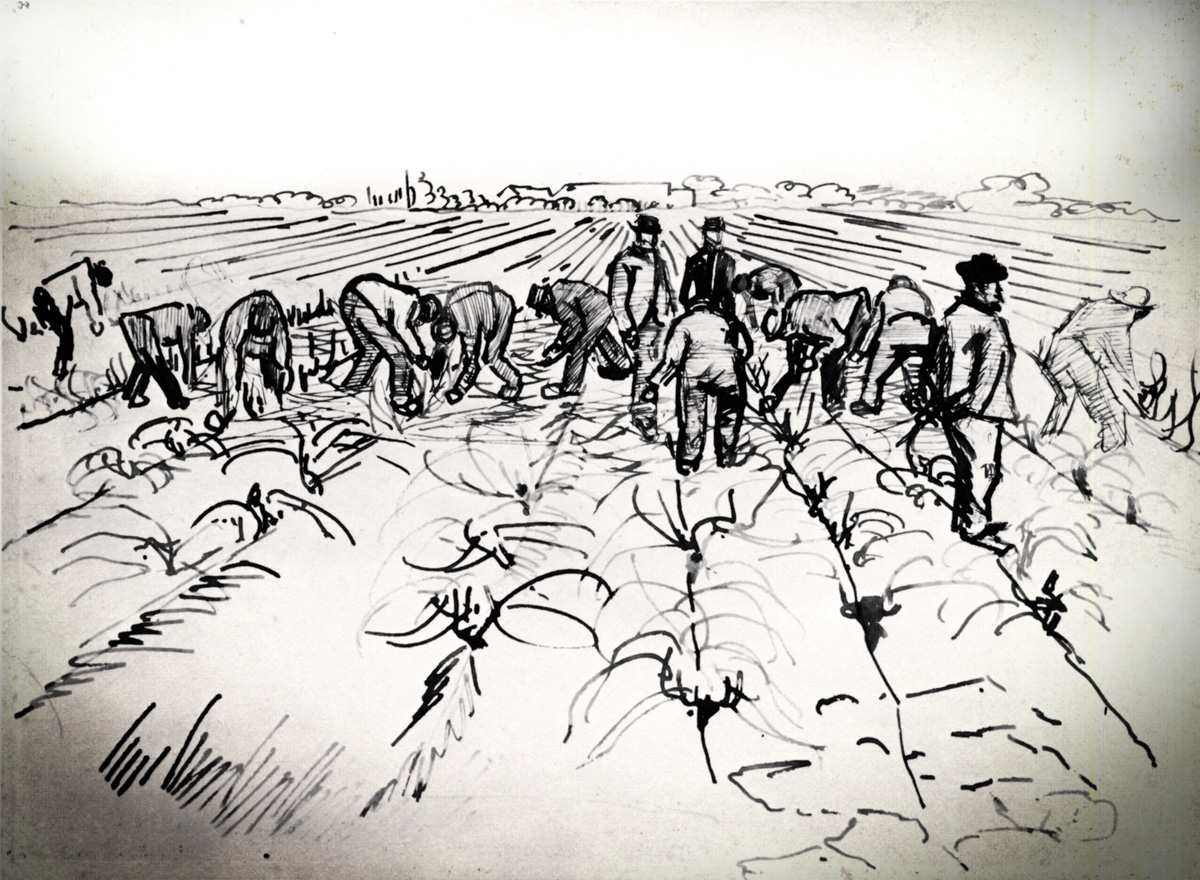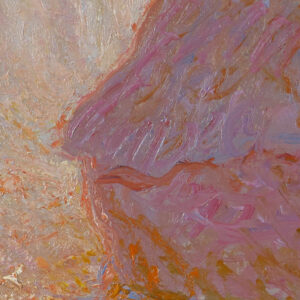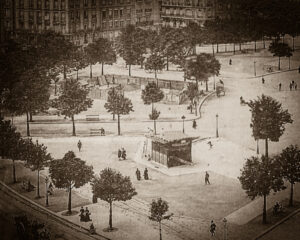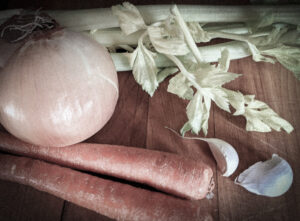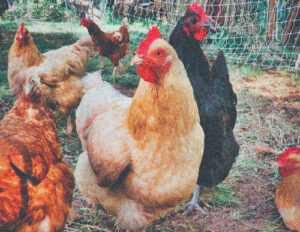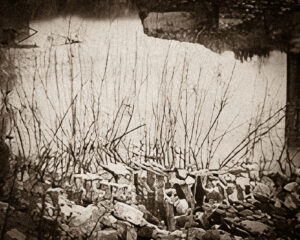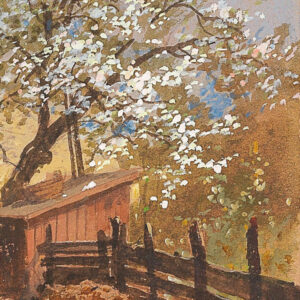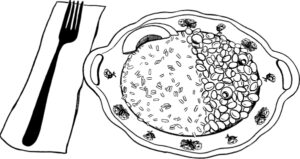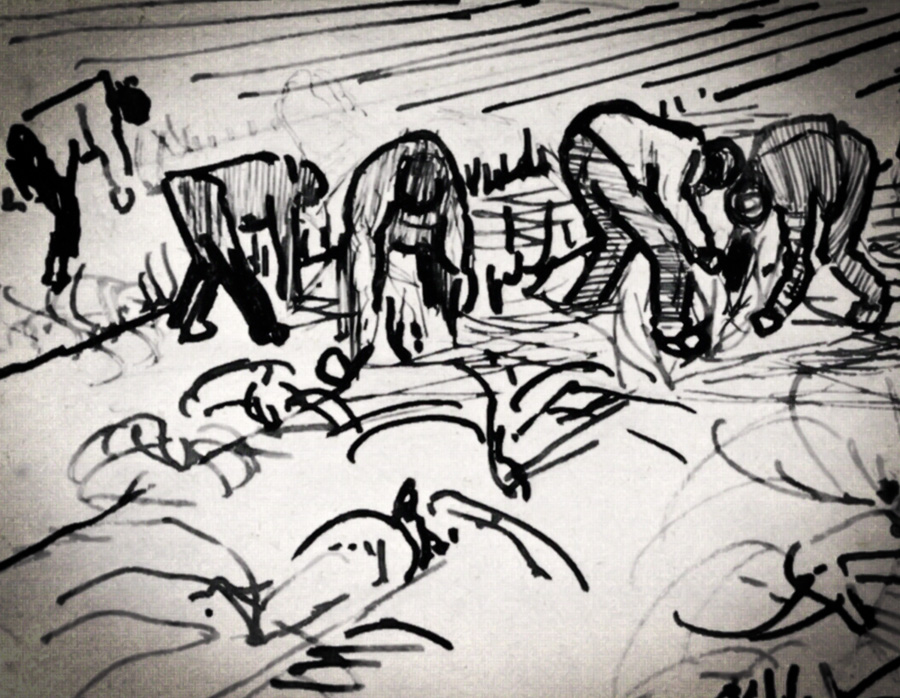
Picking Stones

Mrs. Gina Loehr
Some things still have to be done by hand. Occasionally, a visitor to our farm will ask if we milk our cows with automatic milkers. Yessir, we sure do. My husband, Joe, was born in 1975 and his dad had already been using milking machines for twenty years or so by then, so that technology isn’t as new as some may think. Joe never milks by hand, unless he’s helping a cow with special needs.
His childhood chores did involve many escapades with pitchforks and wheelbarrows though. We still use them here, but a lot of that work now gets done with a skid loader and a manure hauling vehicle. There are tasks such as picking stones, however, that we don’t ever pass off to a machine.
For those who may be wondering (as I was when my then-boyfriend first asked me if I wanted to come over and help pick stones), stone picking is a field chore that must be done every spring. Every single spring. In the same fields as last year. Same fields, new stones. It really is the job that never ends.
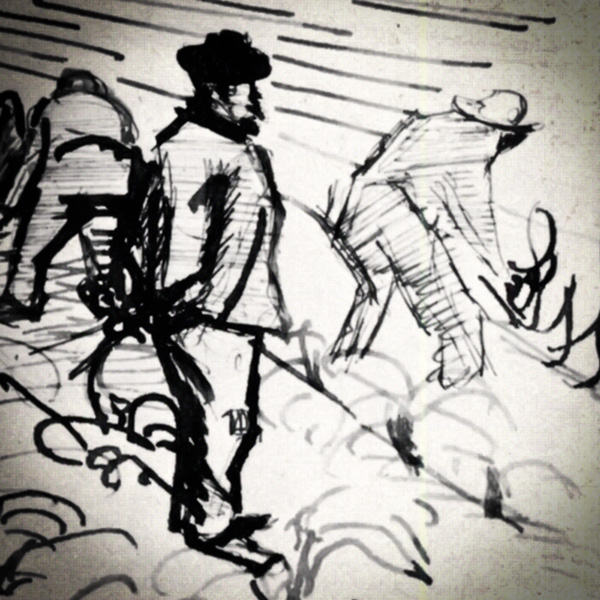
Joe tells me that over time, generations really, a field does have fewer and fewer stones thanks to the efforts of the farmers through the years. I haven’t been around here long enough to see it, but apparently the fields used to be more laden with rocks than they are now. Those big stone piles that mark property lines are a testament to this fact. All those rocks didn’t just grow there.
The idea here is that before planting, you have to scour the earth for the softball-size or larger stones that have risen to the surface since harvest season. They have to be hauled out of the way so that the farm implements coming in will not be damaged as they course through the rows, planting the seeds that will determine so much about the future of the farm. Machinery has been invented to help with removing rocks, but those mechanized stone pickers do a number on the soil, and the damage from the erosion they cause cancels out the benefit they offer.
They have to be hauled out of the way so that the farm implements coming in will not be damaged as they course through the rows, planting the seeds that will determine so much about the future of the farm.
So what you do is, you put on some old sneakers and dust-ready clothes and you and a few other folks walk through a field alongside a moving ATV, a John Deere Gator in our case. Unless you’re one of the types that will be picking the tough ones. Then, you put on a pair of steel-toed boots and prepare to use your heels and toes – and maybe a crow bar now and then – to pry loose the bigger stones whose noses are just peeking up through the surface of the compacted dirt. A few hours of that kind of action and sneakers would be shot.
The driver keeps an eye on the crew and gently pushes the gas while the pickers bend down, pick up stones, toss them in the bed of the Gator, and walk on to the next bulge in the ground. You walk to one end of the field, then turn around and walk to the other in lawnmower-esque fashion until you’ve covered every inch of soil. Some fields are easier than others. Filling the bed of the Gator can take ten minutes or it can stretch over a leisurely hour depending on your luck. For every fill, there’s a trip to what our kids, for some reason, call Jupiter: the special place where rock piles live and grow.
I recall my first encounter with this laborious task. Joe had instructed me on what size stone to pick, and what to leave alone. But he had not shared a rather fundamental piece of information that probably seemed too obvious to mention: big clods of dry dirt look exactly like softball-sized stones. So I kept bending down to pick up stones and kept coming up with dirtballs that crumbled into dust when I tossed them into the Gator bed. It was embarrassing to me, amusing to Joe, and utterly counterproductive.
My other clear memory of this first tour is the debilitating shock I experienced when I learned that we were going to pick this entire field, now, all at once, on this trip, before going back to the house for a break or a snack or anything.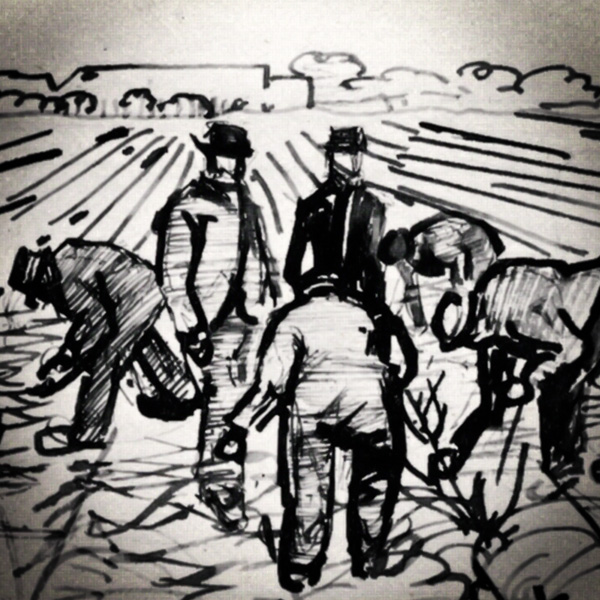 I don’t remember which field it was or how many acres, I just remember thinking, “I can’t even see the end of this field! This is going to take forever!” and, “Doesn’t anybody else want to take a little breather here?” and, “They cannot seriously think we are going to get this done before sundown.” But we did. And I suspect it was the hardest I had ever worked in my life. In terms of manual labor, anyway. There’s certainly a kind of difficulty in intellectual labor, but that species of exhaustion is vastly different from the manual variety, and this level of exertion felt new.
I don’t remember which field it was or how many acres, I just remember thinking, “I can’t even see the end of this field! This is going to take forever!” and, “Doesn’t anybody else want to take a little breather here?” and, “They cannot seriously think we are going to get this done before sundown.” But we did. And I suspect it was the hardest I had ever worked in my life. In terms of manual labor, anyway. There’s certainly a kind of difficulty in intellectual labor, but that species of exhaustion is vastly different from the manual variety, and this level of exertion felt new.
I learned something in that field that continues to astonish me even to this day. Joe and his ten siblings don’t get overwhelmed. In fact, when we were first dating, he was puzzled as to why I mentioned that word so often. The category of “overwhelmed” wasn’t previously on his radar.
Joe and his ten siblings don’t get overwhelmed. In fact, when we were first dating, he was puzzled as to why I mentioned that word so often.
Joe grew up facing an unending onslaught of monumental tasks, but never stood around thinking, “This is impossible, I don’t even know where to start.” Nope. The Loehr approach to those formidable tasks has always been simply to say, “Well, let’s get started.”
No wonder next to nothing ends up being impossible for these self-sufficient farmers. They just resolve to do what needs to be done, and they don’t give up. They work and work or they brainstorm and problem-solve until there’s a solution. No matter how long it takes, either way.
Maybe this is the work ethic that people are talking about when I tell them I live on a farm. “Oh, that’s wonderful for your children,” they often say. “Farm kids are such hard workers.”
It’s very clear to me that I have grown in physical strength, mental toughness, and the willingness to buckle down and get my hands dirty since moving to the farm and being incorporated into the agri-culture here. Change can happen, nurture can influence nature: I hope that toughness will sink into my kids in spite of the soft suburban lineage that shares space with the dogged determination in their veins.
And I hope that no matter what the world throws at them, my kids won’t feel overwhelmed, or surprised to see that new stones always rise up in old fields. I hope that toughness will lead them to simply say, “Well, let’s get started.”
